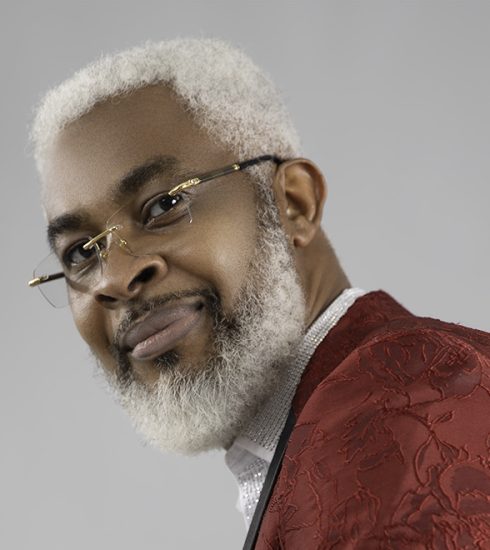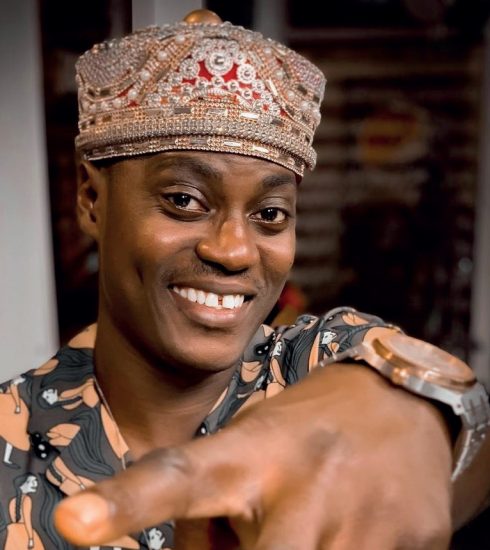Praiz Speaks: Crafting Hits, Facing Challenges, And Mine
In the vibrant rhythm of Nigeria’s music scene, artists work tirelessly to elevate the Nigerian music industry to international heights. This vibrant landscape has seen a remarkable evolution over time, producing musicians whose songs are heard far beyond the boundaries of Nigeria.
Praiz is the whole package. In addition to being a vocalist, he also writes and produces his own hits. His rise from the spotlight of Project Fame West Africa, where he finished as the first season’s second runner-up, to his current stature as one of the industry’s biggest stars is nothing short of a musical success. Born Ugbede Adejo, Praiz is a well-known R&B artist, producer, composer, and performer from Nigeria who is praised for his distinctive fusion of cicada and Nigerian music. His discography includes hit songs like Rich and Famous, Sisi, and the recently released entrancing single Mine.
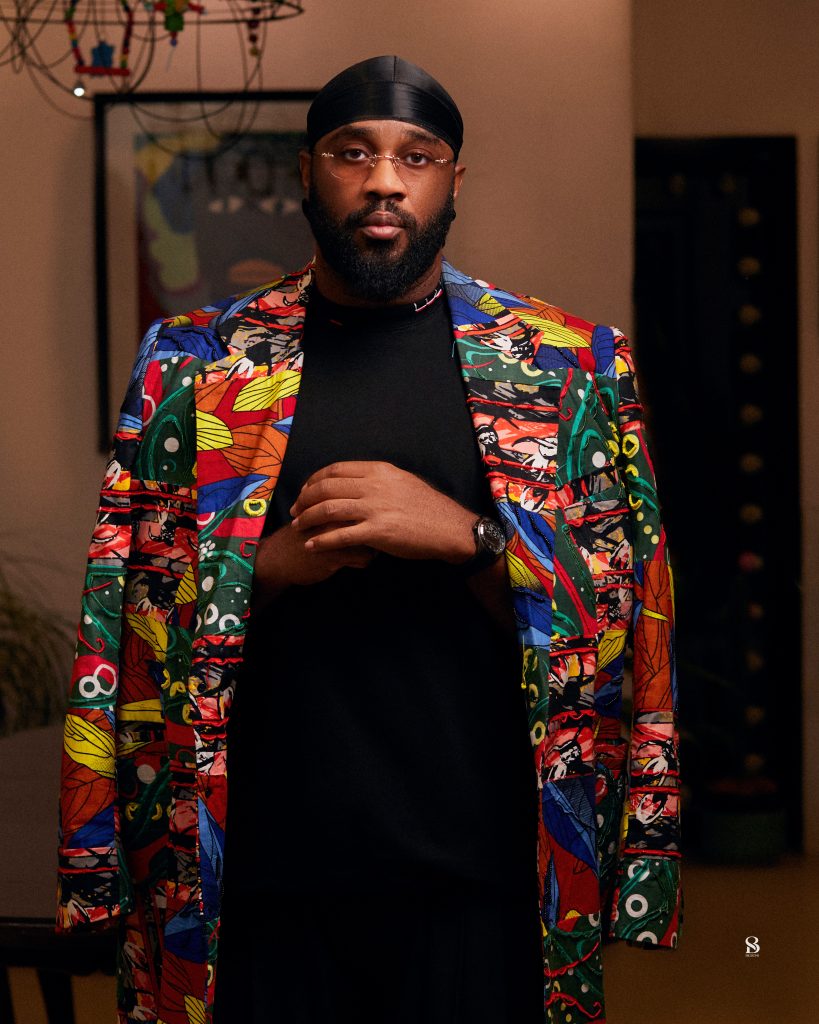
Praiz’s talent has cemented his position as one of the most promising Nigerian musicians. In this interview with THEWILL DOWNTOWN’s Dorcas Akintoye, Praiz talks about the highs and lows of his career, his observations on how the music business is evolving, and the inspiration behind his most recent, captivating track, Mine.
What inspired you to pursue a career in R&B?
My inspiration to push my career in R&B was, firstly, about the kind of music I was surrounded by while growing up. As a child, I loved R&B music. As a kid, I listened to a lot of R&B music. My dad had a lot of R&B records. And my love for R&B grew personally. Coming into the industry, I always wanted to be different; I didn’t want to be part of the bandwagon. I wanted to stand out. And I decided to create a path that I’ll stick to.
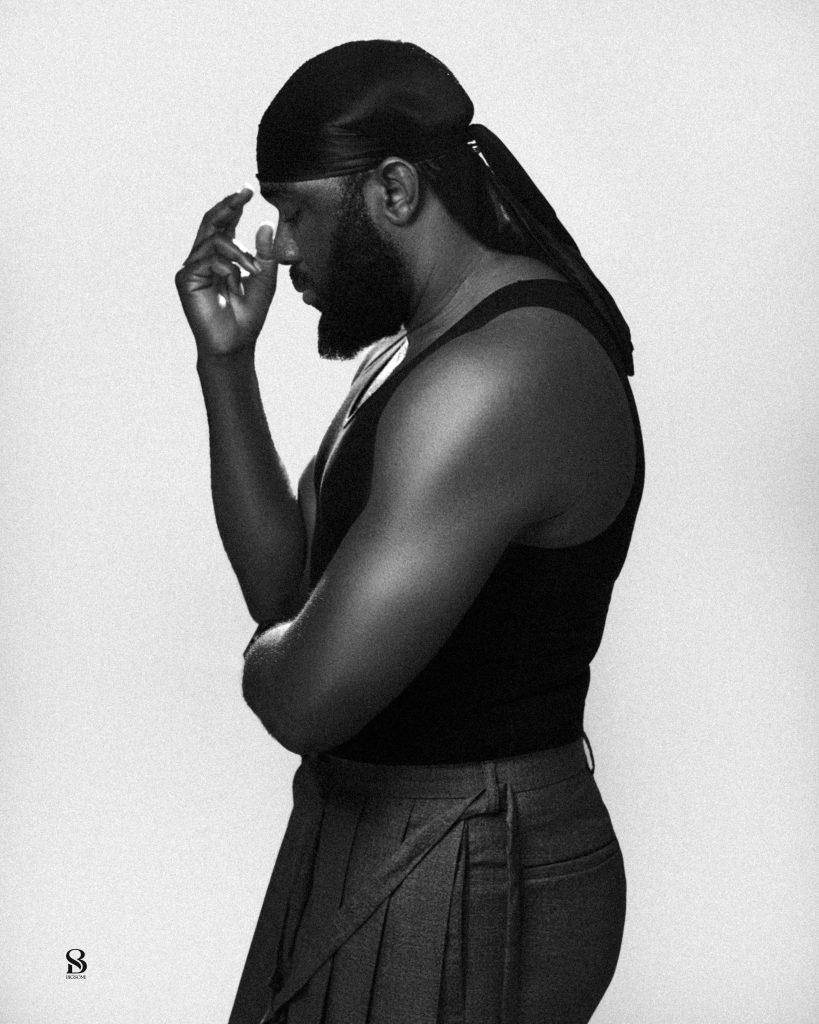
And how do you think that your style has evolved over the years?
My style has evolved tremendously over the years. When I look back from when I started to today, it has evolved. From my songwriting to my vocal delivery to my music direction, it has changed, and it has changed in a good way. So I’d rather say it has evolved in a good way. And it would always keep evolving. You know, it’s always important to evolve as a creative, as a musician. Try to stay current with the times, but not lose your essence. You know? So, with time, my sound has continuously evolved.
As a songwriter, what themes or experiences do you find most compelling to explore in your music?
Every experience, to be honest, compels me to write because I like to write my music from a place of honesty. I like to write my songs from a place of relatability. I want people to listen to my music and be able to connect. So, I would rather write songs from personal experiences, either direct or indirect. You know, just songs that people can relate to emotionally or otherwise.
How do you balance being a songwriter, producer, and singer in your creative process?
So, for me, I think it’s easy because before I got into music, I was playing football, but I started as a producer before I started singing. So, my love for music, when it comes to songwriting and producing, comes effortlessly. It’s not stressful. It’s a good balance. It’s something I’ve always wanted to do. It’s something I enjoy to do. So when I’m making music, songwriting, producing, it just comes hand in hand for me, to be honest. For some people, it’s different. It might be quite a work for people, but it’s very easy for me. It’s something I love to do, something I enjoy doing. So, it’s pretty fluid for me.
Can you highlight some challenges you have faced in the music industry and how you have overcome them?
One of the challenges I faced in the industry, especially when I started, was I came into the industry when there was R&B music, but it wasn’t given its acknowledgement. It wasn’t given the hype. It’s way better now, but back then, when I got into the industry, you had to prove yourself. You had to score hits for the industry to recognise you. And it was not easy for me, to be honest, it was very tasking. It was also very discouraging at some points in time, but I’m just grateful for the tenacity that I had. I believed in myself. I kept going, and I recorded Rich and Famous. Rich and Famous was my third single, and it changed everything for me.
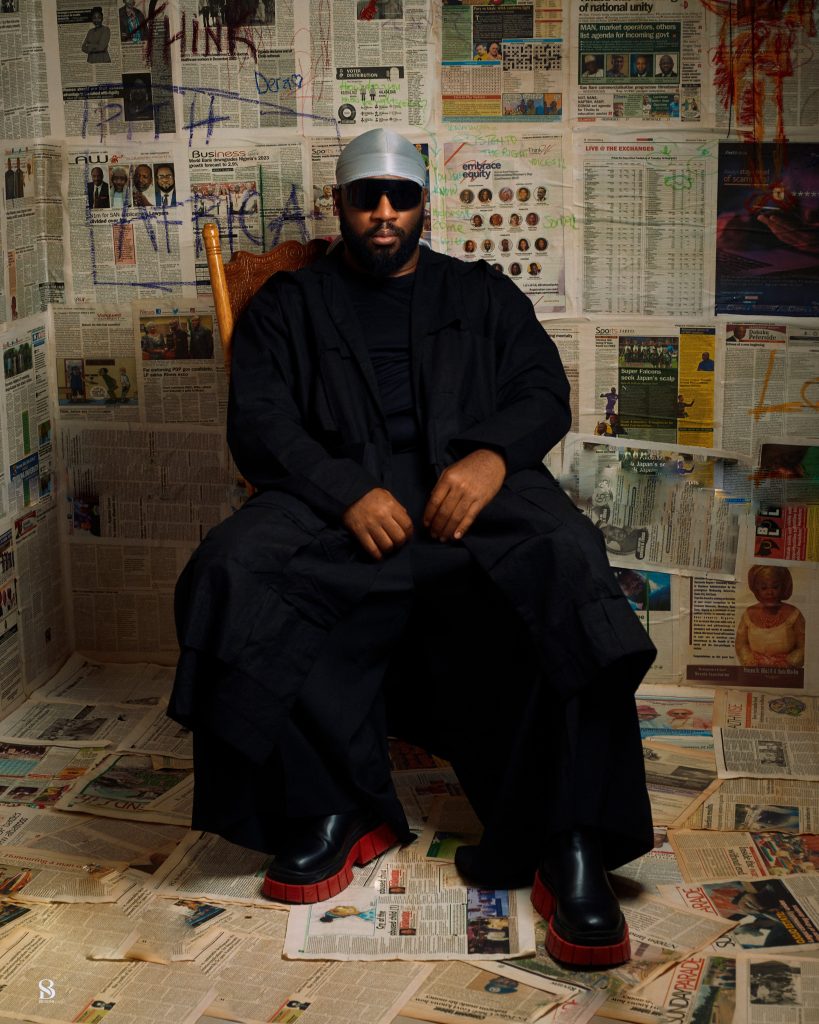
Rich and Famous and Sisi are among your hit songs. How do you approach creating memorable and impactful songs?
Sisi, Me and You, and Folashade, to name a few, are some of the hit songs I have written. Rich and Famous was written by a friend of mine. But, like I said, I like to write songs that inspire people. I like to write music from a personal space or what I’m experiencing. For Sisi, it is a different song. It’s more like club music and was one of my most organic recordings. Funny enough, it was the last song to be recorded on the Rich and Famous album. We were supposed to record for a long time, and he happened to be in town. I reached out to him, and he was like, let’s come to the house and record the song. So, I went to his house. Sisi was very organic. We decided to have a good time and record and write. For Sisi, it was quite different; it was a different approach from my regular style of music, my approach to music, and my direction of music. And it would usually go that way. It’s just a lot different. I think that there are two different ways to record, especially when you’re recording with one or two artists. When two heads come together, you come from a different space. So, it’s different when you’re making music with someone else and when you’re making music alone.
How do you feel about the evolution of Nigerian music on the global stage, and what role do you see yourself playing in it?
It’s so exciting to see how far the Nigerian music industry has gone and how far the music is going. The Nigerian musicians have done great, from the people before us to the guys making it happen right now.
I feel like I’m still playing my role, and I think I played my role at the beginning. Shout out to my brother Bez. He and I were the first African artists to be on BET, so the song Stupid Song was also an opener For African music. So we keep doing what we have to do. Right now, I’m a member of the Grammy Recording Academy. We’ve been advocating for The Afrobeat or African music category. It’s great to see we have been given our category this year, you know, because our music stands out, and our music is what the world is vibing to right now.
Your song Mine is your latest single. What inspired the creation of the song, and how does it differ from your previous work?
I released a new single called Mine on the 8th of December, and it’s been receiving great reviews; people are saying they love it. It’s quite different from every other song I’ve put out, which is one thing I love about my creative process. I like to make music that doesn’t sound the same as what I’ve done before. I approached this single from two perspectives: It’s a fusion of Amapiano and R&B or soul. It’s not the typical noisy Amapiano. I’m a big fan of some records, like Abalele; these are very soulful Amapiano songs, and I wanted to make something in that direction. So I just went into the studio, brought out my laptop and keyboard, and said I’d produce it. I love the music. I allowed the music to take me to where I wanted it to, and I came up with Mine. My music creation is different now. When I started, it used to be me writing music, then writing the song, then creating the music to the song, but now it’s different; it’s me starting by making the music based on how I feel, then I write to how the music makes me feel. So it was one of the instances, and I’m glad people loved the record.
Being part of Bez’s That Stupid Song with a world premiere on BET’s 106 & Park is a notable achievement. How did that collaboration come about, and how did it impact your career?
Funny enough, I was on my way to Ibadan for a show, and Bez was wrapping up his album; I think it was also the last track on his album, and we needed to send his album off for mixing and mashing in the States; it’s like the final phase before the song is out.
So Cobhams called my manager, and he said, “Yo, we were trying to quickly just wrap up this recording for Bez’s album because we need to send it this night,” I told him we were on our way to Ibadan. Then, Cobhams said it won’t take us that much time. So we turned around and went to Cobbham’s studio, and it was so organic. It was fun. It was something I could relate to; everyone related to it. We recorded a studio song, where we sang about old folk songs—songs we used to sing as kids. So, it was a good time, and I’m happy that the song greatly influenced the music industry.
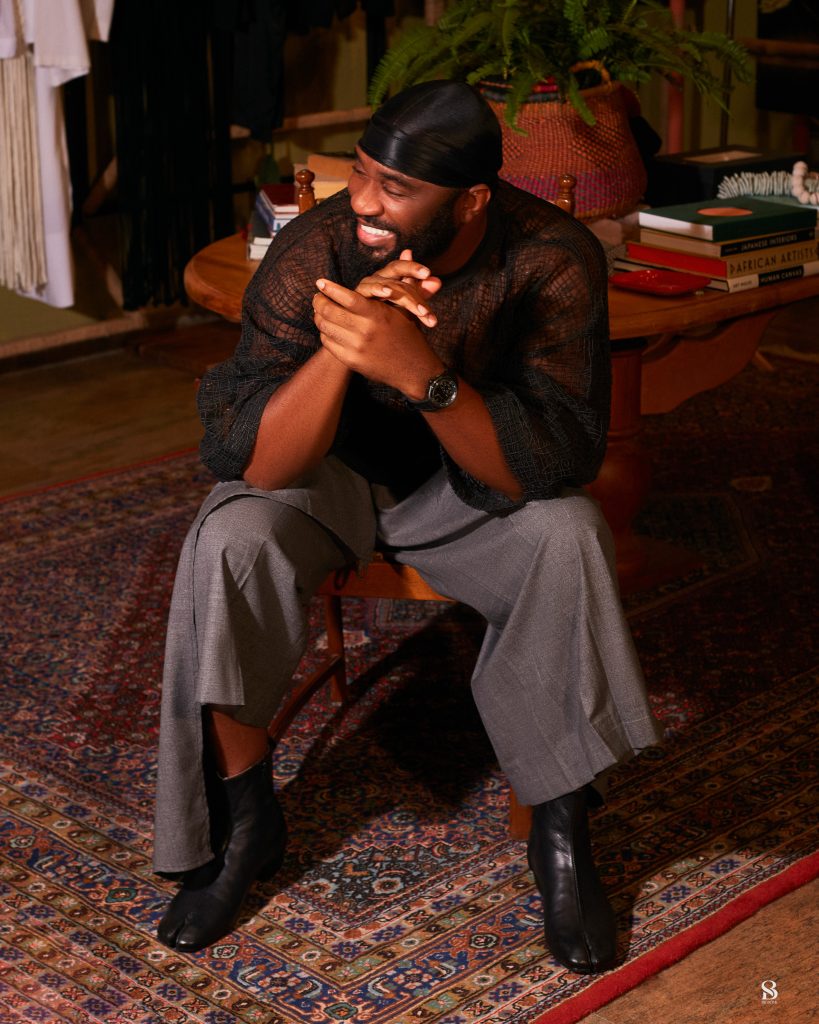
How do you balance staying true to your artistic vision and meeting the expectations of the audience and the industry?
I do not make music for validation, and that has also helped me stay true to myself and given me longevity in the industry. I’m not a people pleaser, and I don’t make music because it’s trending. I know how to evolve with time and trends but stay true to myself. I make music that comes from my heart, those that connect with me. I don’t have to please people; maybe because this style of music is popping right now, I have to jump and go there. It just makes me a confused artist. So, you have to stay true to yourself. I stay true to myself and do what I love and what comes to me naturally.
Are there any specific artists or genres that have influenced your musical style or significantly impacted your career?
I think R&B songs. The genre I do obviously influences my music. Back in the day, I listened to soft rock, and I also listened to some hip-hop songs, though not so much. I listened to some Afrobeat songs. So yeah because I like fusion, I listen to different genres of music.
In your creative process, do you have any rituals or routines that you find particularly conducive to producing your great music?
I don’t like too many people in the studio, and yes, I do not drink before I record; that’s a ritual for me. I stay away from alcohol before I sing or before recording because it tends to close my vocal cords; it restricts me from hitting notes. I remember one time when I went to support a friend. It was Harry Songs’ Industry Night back in the day, and I wasn’t going there to sing, and he saw me in the crowd and was like, Yo make some noise for Praiz, and I was like, Yeah, I was going to raise it. Before then, I was already drinking; I went on stage, and it was a disaster. I learned my lesson then, and I decided to stay away from drinking anytime I’m about to sing.
How do you see the role of technology in shaping the music industry and how has it influenced your approach to creating and sharing music?
Technology has done so much in the music industry. It has pros and cons, but it has made it way easier to connect with your fans, to know the data of your music, and to know where people are listening to it. It has brought more knowledge about the back end of your music and the business of music. I’m grateful for technology to be honest. On the cons side, it has made some people quite lazy. It has also deceived a lot of people. When I say deceived, For example, let’s say Twitter, some people get lost in Twitter and feel like if you’re trending on Twitter, then your music is moving; meanwhile, it might be the opposite. So it could be deceiving, but I must say that it has done more good than the reverse.
Can you share a moment in your career that you considered a turning point or a milestone?
For me, every phase in my life is a milestone, and that’s because I decided not to despise my little beginnings. From Project Fame, I honestly feel like that’s a turning point for me at a time in my life. Also, performing alongside Joe and Brandy was another turning point for me. Being awarded a day in The City of Minnesota in 2017 was another major milestone for me; that was big, and I feel like it keeps going. Being accepted into the Grammy Academy as a member was also a significant milestone for me, and as always, it would keep getting better.
Are there any other genres of music or collaborations you would like to explore?
I have a couple of collaborations in the works; once we’re done, I will announce because this year, I’ll be putting a lot of music out; fans should stay ready because it will be a lot.
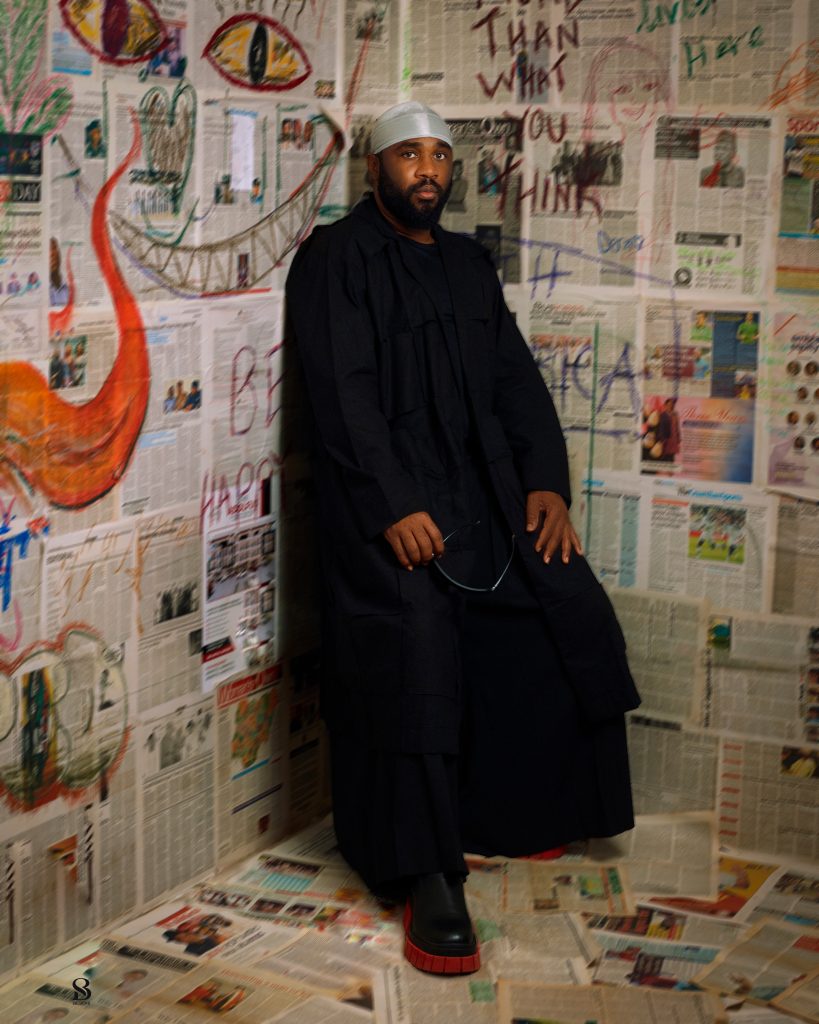
How do you handle criticism and what advice would you give aspiring musicians on dealing with feedback and setbacks?
I handle constructive criticism well. I always like to analyse. When I make music, I have people with whom I play my music, people who are brutally honest with me. We creatives are very soft with our art; we hold it like an egg, very fragile to us, but I have people who are brutally honest with me, and I know every constructive criticism is for the betterment of the art. So, I take criticism well and advise anyone who wants to make music to know what you want to be known for. Don’t be a confused artist. Surround yourself with people who tell you the truth. Get someone to understudy. You don’t need to deal with the person personally; it could be like Michael Jackson. Read about him, watch his clips, and his performances. Never sign a contract without a lawyer; try to improve yourself. Stay humble. Lastly, I would say build and keep relationships because the time will come when you’re down, and what will keep you going is the relationship, not even the money. So relationships are key in the industry.
Are there any other genres of music or collaborations you would like to explore?
I can’t think of anyone off my head right now, but yeah, I’m definitely a versatile musician. Well, not just any genre, to be honest, but I’m open to recording music out of my comfort zone that still leaves my essence obvious, just like making sure that the Praiz people love can be heard. So, yes, I’m open to collaborations.
What legacy do you hope to leave as an artist in the Nigerian music scene, and how do you want to be remembered?
The legacy I want my music to leave is for people to listen to my music and be in a better place mentally. I’ve been getting messages from people who were on the bridge of suicide, and they listened to my songs, and it did a lot of good for them; it brought them into a better space. So when I hear stuff like this, I feel fulfilled because it’s not just about this dropping music; what effect does music have on the listener? I want my music to bring peace. I want my music to bring happiness, love, joy, and longevity. I want to make music that, in 20 to 30 years, people will be happy when you play that song. That’s the legacy I want my music to leave.
What are your goals and aspirations for the next phase of your music career?
For my music career, I’m being more intentional this year. I’ve started my music label. Aside from being an artist, I’m assuming a more executive role, trying to partner with global companies and taking my music to a different level. This year, I’ll be putting out a couple of projects, and I’ll be touring. It’s going to be a great year.

Dorcas Akintoye is a versatile writer with a passion for beauty, fashion, relationships, and culinary delight. With a keen eye for detail and a passion for storytelling, she adds a touch of elegance to every topic she explores. She is a writer at THEWILL DOWNTOWN.




